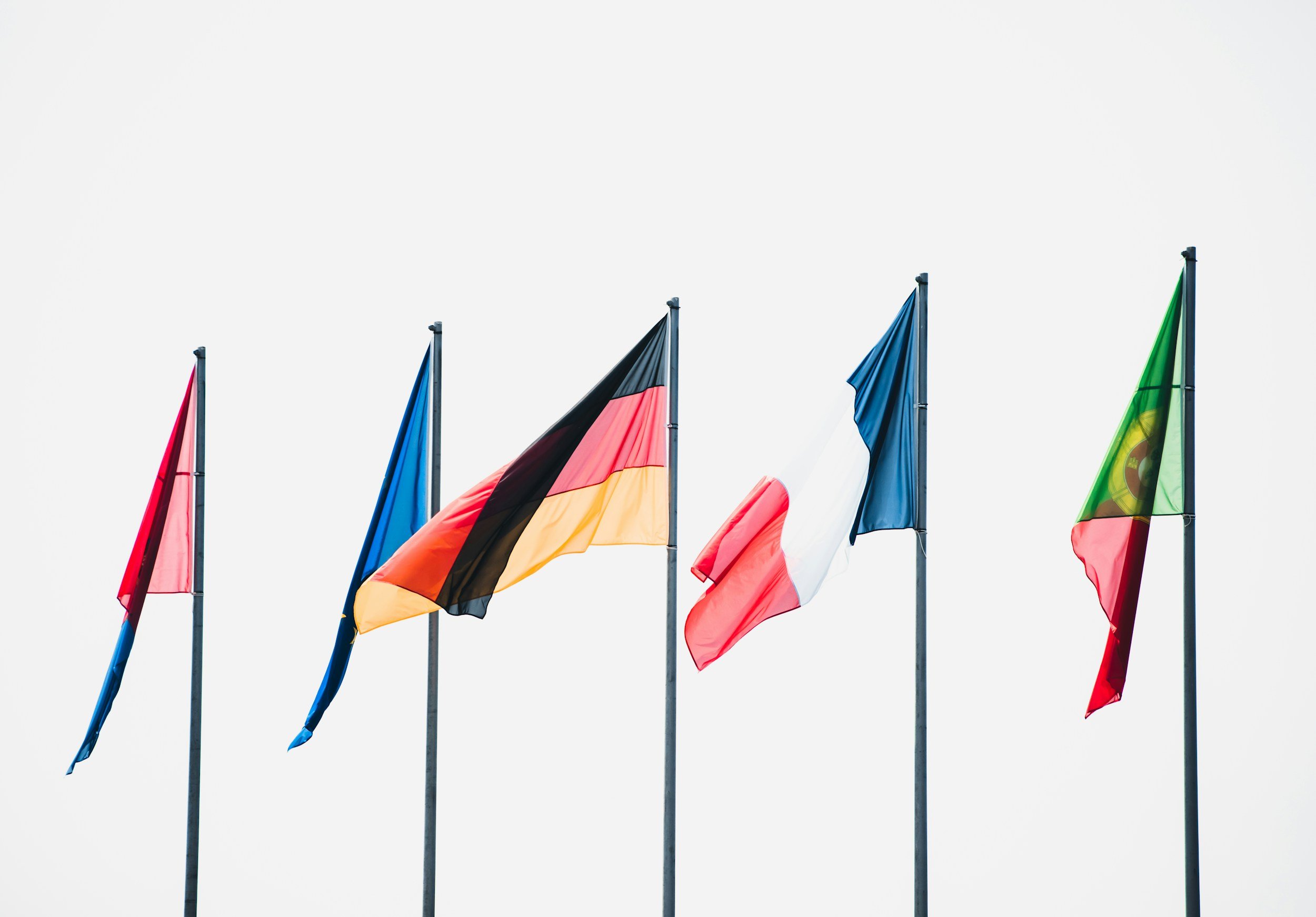The Global AI Battle: Why the West Is Targeting China’s AI Industry
Image Credit: Victor He | Splash
AI tools developed in China are facing heightened scrutiny. Concerns over data privacy, security and potential political influence have led several nations to question the reliability of AI solutions originating from China. While Beijing has firmly denied any allegations of data misuse, skepticism remains.
[Read More: Italy Bans DeepSeek AI: First Nation to Block China’s AI Over Privacy Issues]
China’s Stance on AI Data Privacy
China’s Foreign Ministry has responded to these concerns by reaffirming the country’s strict adherence to data privacy and security laws, particularly through the enactment of the Personal Information Protection Law (PIPL) and the Data Security Law (DSL) in 2021. These laws are designed to regulate data handling practices and ensure data security within China.
A government spokesperson emphasized that China does not compel companies or individuals—such as Deepseek, a Chinese AI entity—to unlawfully collect or store user data. Instead, Beijing has framed the growing international scrutiny as an attempt to politicize economic and technological issues, arguing that national security concerns are frequently used as a means to restrict Chinese firms from competing in global markets.
The Chinese government has criticized measures taken by other countries, such as the U.S. ban on TikTok, as politically motivated attempts to hinder China’s technological advancements. Official statements from the Ministry of Foreign Affairs and the Ministry of Commerce argue that national security concerns are often used as pretexts to suppress foreign competitors, thereby undermining fair competition and international trade norms.
Despite these assurances, China’s AI landscape is evolving under increasingly stringent regulatory control.
In April 2023, the Cyberspace Administration of China (CAC) issued draft measures to regulate generative AI services, signaling a shift toward tighter oversight. By July 2023, the CAC, in collaboration with six other national regulators, introduced the "Interim Measures for the Management of Generative AI Services", which took effect on August 15, 2023. These measures require AI service providers to comply with guidelines that include aligning with "Core Socialist Values" and ensuring that generated content does not undermine state power or national unity. Additionally, providers must conduct security assessments and submit regulatory filings before offering services to the public.
While these regulations aim to prevent the misuse of AI-generated content, such as the spread of disinformation or threats to national security, they have also sparked concerns about censorship and increased state control over AI development. Critics argue that requiring AI models to align with "Core Socialist Values" and avoid generating content that challenges the socialist system could result in over-censorship, stifling innovation and creative freedom.
The Rising Importance of AI Security
With AI-generated content playing a crucial role in shaping public opinion and political discourse, nations worldwide are tightening their AI security frameworks.
For instance, the European Union is advancing the AI Act, a comprehensive regulatory framework designed to govern AI technologies. The Act categorizes AI applications based on risk levels and enforces specific legal requirements, reflecting a broader global movement toward stricter AI oversight.
In South Korea, concerns over the misuse of AI tools in disinformation campaigns and cyber espionage have intensified. The National Intelligence Service (NIS) recently accused the Chinese AI app DeepSeek of excessively collecting personal data and using all input data to train itself, raising alarms over potential misuse.
However, the risks associated with large-scale AI models are not exclusive to China. AI technologies—regardless of their country of origin—pose fundamental challenges related to misinformation, biased outputs and ethical concerns.
That said, China’s AI sector faces unique scrutiny due to the country’s broader track record of digital surveillance and information control. In response, Western governments, including the United States and the European Union, have tightened restrictions on AI chip exports to China, limiting its access to cutting-edge AI development resources.
[Read More: The Fall of China's GPU Giant: Xiangdixian's Sudden Collapse and Its Ripple Effects]
Rule of AI vs. Rule by AI: A New Governance Challenge
This debate reflects a broader philosophical divide between Rule of AI and Rule by AI—mirroring the legal distinction between Rule of Law and Rule by Law.
Rule of AI suggests a framework where AI operates under ethical, legal, and societal norms, ensuring transparency, accountability, and fairness. AI would serve as an enhancement to human decision-making rather than a substitute for governance.
Rule by AI implies a system where AI dictates or influences decisions with minimal human oversight, potentially prioritizing efficiency over ethical considerations. This could lead to opaque decision-making processes that serve those controlling the technology rather than the broader public good.
In the context of China’s AI governance, critics argue that the country leans toward Rule by AI, using AI for surveillance, censorship and social governance. Conversely, Beijing asserts that its AI development aligns with Rule of AI, adhering to legal frameworks and promoting responsible AI deployment.
AI as a Geopolitical Battleground
AI technology has become a key front in geopolitical competition, particularly between China and Western nations. The United States, the European Union, and allies such as South Korea and Japan are making substantial investments to secure their AI ecosystems and reduce foreign influence. In April 2024, South Korea announced a 9.4 trillion won (US$6.94 billion) investment in AI by 2027 to maintain its leadership in advanced semiconductor technologies. Similarly, Japan is committing to quantum encryption development by 2030, with funding beginning in 2025.
To manage AI-related geopolitical risks, nations have implemented export controls, trade restrictions and regulatory measures. Chinese AI firms face limited access to key markets and advanced semiconductors due to U.S. export controls imposed on national security grounds. In response, China is strengthening AI partnerships with the Global South, particularly in Africa and Southeast Asia. Its top cyberspace regulator has pledged deeper AI governance cooperation with African nations, while China has also forged bilateral space partnerships with over 20 African countries, integrating technology into infrastructure development.
Chinese companies are actively involved in AI-driven infrastructure projects. In 2024, Huawei signed an agreement with Zambia to develop 100 smart villages, incorporating solar-powered microgrids and wireless connectivity. In Kenya, it has contributed to the development of a data center and smart city in Konza. Meanwhile, Singapore has emerged as a key AI hub in Southeast Asia, attracting Chinese tech firms like Alibaba, Huawei and Yitu due to its strategic location and advanced infrastructure.
Beyond technological expansion, China is advocating for a global AI governance framework under the United Nations, positioning itself as a leader in AI ethics and regulation. The Shanghai Declaration on Global AI Governance, issued at the 2024 World Artificial Intelligence Conference, calls for international cooperation, a strengthened UN role and enhanced North-South and South-South collaboration, reflecting China’s ambition to shape global AI policies.
[Read More: U.S. Probes Singapore's Role in Nvidia Chip Sales to China Amid Export Control Concerns]
Source: Reuters, CNN, China Law Translate, Future of Privacy Forum, Tech 360, MFA













